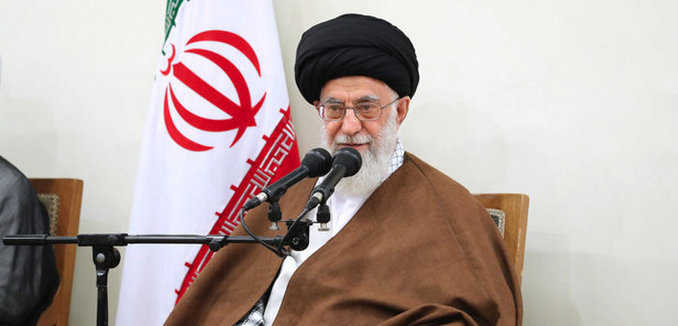The recent report in Politico that the Obama administration shut down a systematic investigation into Hezbollah’s drug running in the Western Hemisphere in order to secure the nuclear deal with Iran underscores one of the main costs of the deal: it normalized Iran’s abnormal behavior.
The nuclear deal not only erased the sanctions Iran incurred for its previous nuclear violations, but also removed much of the leverage the international community had for countering Iran’s human rights abuses at home as well as its destabilizing behavior in the Middle East and around the world.
Shutting down Project Cassandra, as the effort targeting Hezbollah’s narco-terrorism was called, was apparently done, according to one Treasury Department official, “for fear of rocking the boat with Iran and jeopardizing the nuclear deal.” But this wouldn’t be the only action against Iran and its allies that the United States refrained from pursuing in order to secure the nuclear deal.
Josh Meyer, who reported the Project Cassandra story, observed in April that the Obama administration had released or stopped pursuing a number of arms and nuclear sanctions violators. Doing so meant that the United States sacrificed an opportunity to “gain insight into the workings of Tehran’s nuclear, missile and military programs.”
Former Obama administration official Frederic Hof observed in May of last year that “we know now” that the reason Obama failed to intervene in the mass-killing in Syria was the “pursuit of a nuclear agreement with Assad’s premier long-term enabler and partner in mass murder: Iran.” It was subsequently reported that both Iranian and American diplomats said that had the Obama administration taken action against Syria dictator Bashar al-Assad for using chemical weapons Iran’s Islamic Revolutionary Guard Corps would have scuttled the talks.
But the nuclear deal didn’t just strengthen the international terrorist organization Hezbollah, the mass-murderer Assad or stymie efforts to rein in Iran’s proliferation threat. The deal emboldened Tehran to further repress its people and even target visitors to Iran.
Reporting on a crackdown against individuals promoting closer ties to the United States, The New York Times observed in November 2015, “Anyone who hoped that Iran’s nuclear agreement with the United States and other powers portended a new era of openness with the West has been jolted with a series of increasingly rude awakenings over the past few weeks.”
A few months later The Wall Street Journal, in January 2016, reported that “Tehran security forces, led by Supreme Leader Ayatollah Ali Khamenei, have stepped up arrests of political opponents in the arts, media and the business community.”
In the past two months, signs of Iranian brazenness have been frequent.
In early November, an activist seeking independence for the Ahwazi Arabs, who live in southwestern Iran, was killed outside his home in The Hague. Reuters reported that over 30 dual nationals had been arrested by Iran since the nuclear deal was agreed to. Israeli Prime Minister Benjamin Netanyahu said that Iran had again refused Israeli aid following a deadly earthquake. Christians in the Kurdistan Regional Government accused Iranian-backed militias of targeting them. An Iranian general threatened to extend the range of country’s ballistic missiles to reach Europe, following the insistence of newly elected French President Emmanuel Macron that Iran limit the range of its missiles. Supreme Leader Ayatollah Ali Khamenei renewed a fatwa prohibiting women from riding bicycles. Iranian hackers were reported to be targeting dissident around the world and the hacking was identified as likely being a military effort. British Foreign Secretary Boris Johnson returned from a trip to Iran without Nazanin Zaghari-Ratcliffe, who has been held since April 2016 and been convicted of trying to overthrow the regime. Houthi rebels in Yemen have been implicated in firing missiles of Iranian origin into Saudi Arabia. And Human rights groups have been criticizing the death penalty that was handed down to Ahmadreza Djalali, who was convicted of espionage in what was described as “a shocking assault on the right to a fair trial.”
In an interview three years ago, former President Barack Obama, anticipating the nuclear deal, said that he hoped that Iran would accept the deal and would become a “very successful regional power that was also abiding by international norms and international rules.”
The reality is that Iran, contrary to Obama’s rosy vision, remains a regional hegemon flouting international norms and international rules. That is because so much was compromised in achieving the deal – shutting down investigations into Hezbollah and Iranian proliferation efforts, failing to stand up to Assad – Iran learned that there was insufficient will in the international community to enforce those norms and rules.
In October, President Donald Trump when he said that he would not certify Iranian compliance with the nuclear deal, he asserted that the deal has led to “a path whose predictable conclusion is more violence, more terror and the very real threat of Iran’s nuclear breakout.” In his national security strategy speech this week he reiterated that the United States was committed to fighting Iran’s “malign influence.”
Will Trump followup on his words and start enforcing limits on Iran’s malign influence? And if he does, will he get the international community to go along?
[Photo: Mehr News]




